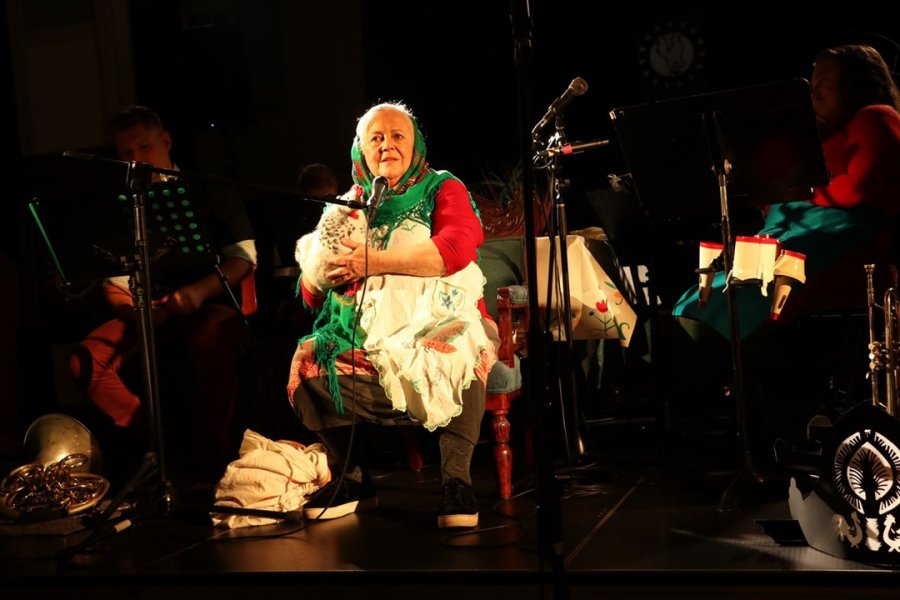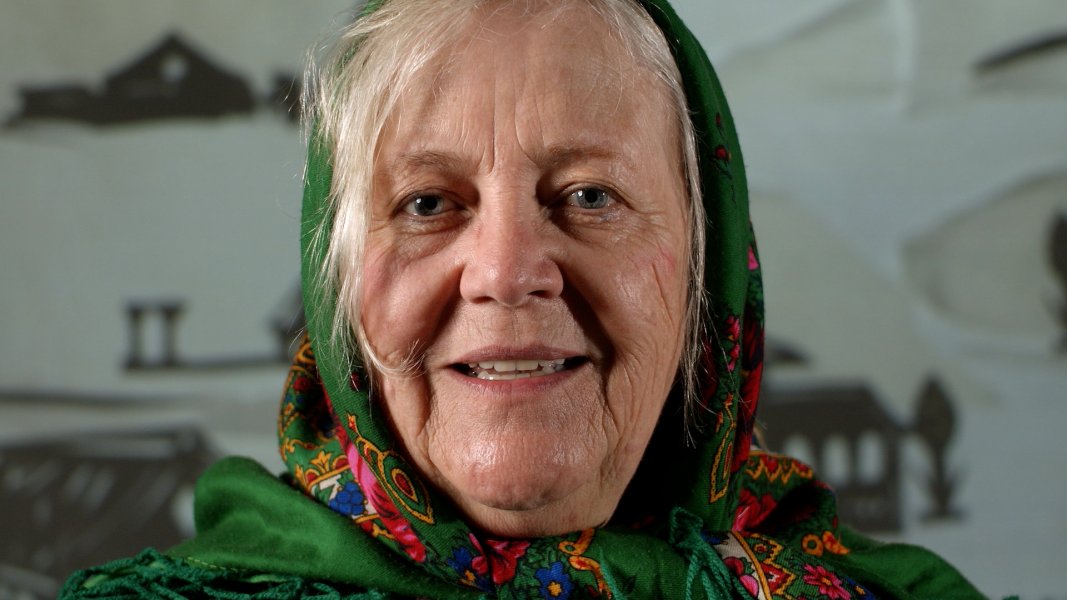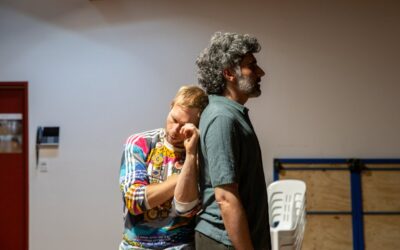Konstantin: Grandmother’s Tongue, is a multicultural, multidisciplinary, slyly political and highly creative performance piece about chickens and human migration set to take the Loft Theatre stage at Chapel Off Chapel from 23 – 25 June.
Five years in the making, the production is helmed by writer and performer Alison Richards, with accomplished collaborators including Bosnian-Australian composer and musical director Nela Trifković, and Polish-born visual dramaturg and designer Dagmara Gieysztor, with images and animations by Abstract Productions.
For Richards, the work has written itself. “I’m sure a lot of writers say that,” she says. “You start with a thread of an event, an image or an idea. Connections build, characters start strutting fully formed into your head, demanding to be heard! Especially roosters, they are very loud and hard to ignore … Significance doesn’t always come ready wrapped, it is shaped by the opportunities you recognise along the way and the choices you make.”
Richards explains that the project has involved a variety of different forms of writing, demanding different approaches and with changing relationships to other compositional elements, including scenarios, story outlines and song lyrics along with more traditional forms of dramatic writing and storytelling. “Then of course as Grandmother Babcia, I must speak the words I have written – that’s an interesting process on its own. Konstantin: Grandmother’s Tongue is just one expression of the very rich imaginary world I have been lucky enough to develop in concert with my collaborators, a fairytale world with deep connections to the everyday world we know. I have been personally engaged with it now for more than five years, learning more as I go and loving every step and new discovery.”
The project has had a long gestation – “very much the chicken and the egg,” quips Richards. “It began with an exchange of stories and visual ideas between me and designer/visual dramaturg Dagmara Gieysztor. We’re both fascinated with fairy tales and the way folk traditions have always been a way for people to raise difficult questions and talk about tricky issues, particularly in places where it can be dangerous to speak your mind too openly. The project took on a distinctly Eastern European flavour from the beginning. One of my early story outlines featured a boastful rooster and an old lady who may or may not be a witch. Dagmara loved the rooster! He became our hero Konstantin and it all went from there …”
“It’s been five years since our initial workshops and longer than that since the first ideas began to hatch. There have been challenges along the way, that’s for sure. The work has also grown and developed, added elements and changed form. In this version, it’s built around a song cycle that forms the spine of the show, with music composed by Nela Trifković and a cast of eight including singers, musicians, a puppeteer/dancer and me. Not forgetting the visual elements including wonderful images and animated sequences by Abstract Productions. COVID interrupted progress more than once and a fair bit of the creative process has been conducted at a distance, by people working in physically different spaces. Nela and I spent a lot of lockdown exchanging lyrics and musical ideas from our respective bunkers, right now Dagmara is designing from Poland! But that’s oddly appropriate for a show about chickens and migration. The moments when we can be together have been so joyful! Which of course includes the audience. We are all so much looking forward to sharing the show with them.”

The show explores the journey of chickens across the globe, revealing hidden stories of human migration. Right now, there are probably around 8 billion humans and more than 34 billion chickens on the planet. That’s around 4 chickens per person, estimates Richards, not counting the chickens dying every day and the 117 million people the UNHCR estimates will be forcibly displaced or stateless in 2023. “Wars are breaking out everywhere, we face a crisis with climate change – but I doubt the chickens are responsible. What might the way we have treated chickens tell us about ourselves?”
Richards has been a champion of social inclusion, creative collaboration, and community-centred performance art throughout her 50-year career as a theatre maker, writer, performer, teacher, and researcher. As a creative she most interested in themes with more than one dimension, stories more than one perspective – and more than one interpretation. She likes themes with resonance, literally and metaphorically. “I like to be tragic and silly, to be serious and to have fun. That’s why I work in the theatre. As the famous director Robert Wilson said to playwright Heiner Muller, be more stupid. Theatre is always a bit vulgar, it doesn’t do to be too po-faced. If only the rest of the world felt the same! And of course right now, I am seriously interested in chickens.”
Specifically as a playwright, Richards really loves to work collaboratively, whether that is on the page or the screen, working visually with artists, with music and musicians or physically on the floor. For her, writing is just one aspect of making a theatre piece. Each collaborator who comes on board brings something of themselves, their creative skills and their individual and cultural perspectives. “Most of us have some personal or family experience of migration. In this show we’re crossing cultures as well as artistic disciplines – it’s that diversity and that exchange between music and images, storytelling and puppetry, that make this version of the piece so special.”
This dark and funny work reveals the hidden intertwined histories of chickens and people through the ages, challenging us to stay hopeful through disaster and uncertainty. Richards opines that iff last year’s concert version was a guide (Konstantin: Grandmother’s Tongue premiered in a concert version at The Mission to Seafarers in Melbourne’s Docklands in 2022,) members of the audience leave the show bursting to tell their stories and to share them with the troupe and with each other. Stories of hope in the face of disaster. Stories of migration, of loss and love, of grandmothers and chickens. Big stories and little stories. Stories about what is precious, what we want to remember and what we will fight to preserve against all odds, even when it seems nobody is listening ….
An outstanding creative ensemble of master artists in the performance crafts have created an extraordinary experience for audiences of all ages and backgrounds – especially those who know what it is like to find a new home in a strange land. Says Richards: “Come and find out why the chicken is still crossing the sea! This is a show that calls to anyone who has left their home for the unknown, those who know what it is like to look for a new home in a strange land – and their descendants. Come and share the journey with us, in songs and stories from grandmother’s tongue.”
June 23 – 25





